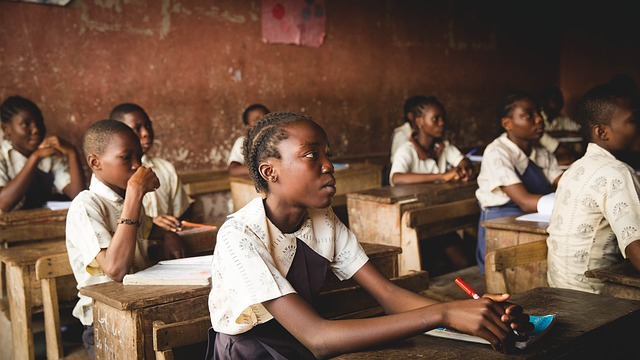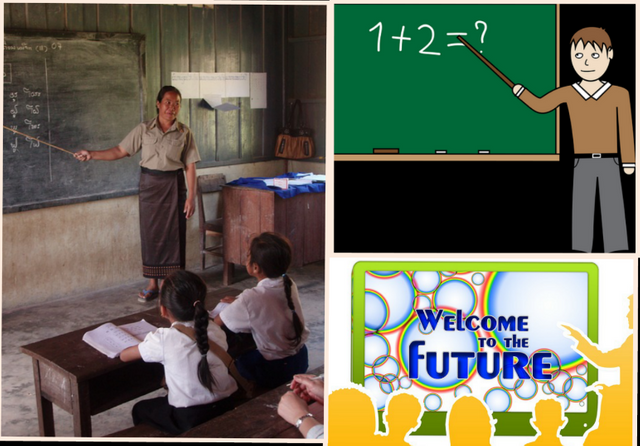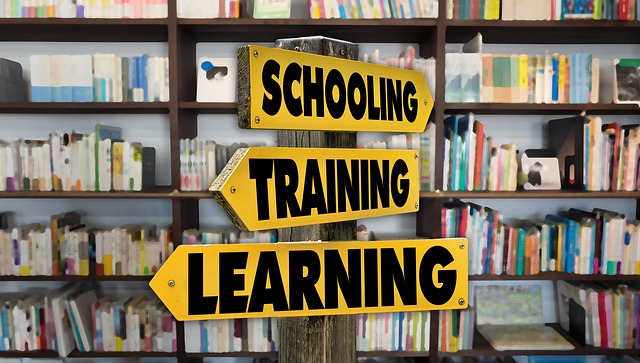HOW IT ALL STARTED
Nowadays every parent wants their children to go to school to acquire knowledge, even when a child doesn't want to they push and force the child attend school. Paulo Freire (1973) called this banking – making deposits of knowledge. If the child doesn't he is an uneducated. But is this really true, why education?.

There are many definition is education according to different authors and great writers...
Education, as we understand it here, is a process of inviting truth and possibility, of encouraging and giving time to discovery.
MARK K. SMITH
The act or process of imparting knowledge, especially at a school, college, or university.
DICTIONARY.COM
Education is the process of facilitating learning, or the acquisition of knowledge, skills, values, beliefs, and habits.
WIKIPEDIA.COM
A proper definition of education is NOT the delivery of information, it is cognitive mapping of reliable access to optimal states of mind.
UNKNOWN
The wealth of knowledge acquired by an individual after studying particular subject matters or experiencing life lessons that provide an understanding of something.
BUSINESSDICTIONARY.COM
Looking at Mark K. Smith definition and that of unknown, there is nothing impossible about education of which through it we bring about discoveries and empiricism. But that of dictionary.com, wikipedia.com and business dictionary.com viewed it as way in which knowledge is acquired. But I disagree with dictionary.com which states its “especially in school”. Check the quote below
It is often said that we are learning all the time and that we may not be conscious of it happening. Learning is both a process and an outcome. As a process it is part of living in the world, part of the way our bodies work. As an outcome it is a new understanding or appreciation of something.
UNKNOWN
Considering above definitions, there is a definition which stands out, that is: EDUCATION IS THE PREPARATION FOR LIFE. This proved that academic school is not the only criteria to achieve education, but school itself. ---A school is an institution or a place designed to provide learning and training spaces and learning and training environments for the teaching of students or pupils or anyone under the direction of teachers or instructors or anyone.

Brief history of education
Craft (1984) noted that there are two different Latin roots of the English word "education." They are "educare," which means to train or to mold, and "educere," meaning to lead out.
Eric.ed.gov
While the two meanings are quite different, they are both represented in the word "education”. Though debates arose concerning the different meanings. Some said education means preparation and passing down of knowledge and shaping the youths in the image of their parents. While the others viewed it as preparing a new generation for changes that are to come--readying them to created solutions to problems yet unknown. Which is still THE PREPARATION FOR LIFE.
The idea began to spread that childhood should be a time for learning, and schools for children were developed as places of learning. The idea and practice of universal, compulsory public education developed gradually in Europe, from the early 16th century on into the 19th.
Peter Gray
Before the inception of agriculture, it was noticed that there was much improvement in children's ways of life at that time. This was due to playing time which the children have. During this playing time the children unknowingly teach and learned within themselves what they need when they became adults. When the parents noticed that this was the best natural way children can learn, they were given freedom to learn and explore on their own.
After the inception of agriculture, there was a change in people's way of life. It was understood that only way to be be rich and acquire property is to engage in agricultural activities. Those who doesn't have land works for those who have. This hinders the playing time of the children as they were forced by their parents or masters to work most of their working hours seven days a week in a harsh condition just to survive. This brought about slave as the children were moved from where they had the opportunity to play, received fresh air before the inception of agriculture to dark, crowded dirt factories.
Most of them on this process died of starvation, diseases and exhaustion until the 19th century when England pass a law against child labor of which in 1883 the new legislation forbids manufacturers from employing children under the age of nine and limits maximum weekly working hours to forty-two for 10-12 years old and sixty-nine for 13-17 years old. Because of this, education of the children was diminished to a considerable degree in other to make them good labourers.
As the industries progressed, the need for child labor declined. The idea began to spread that childhood should be the time for learning and children school were developed. The invention and practice of compulsory, universal basic education started gradually in Europe from early 16th century into 19th century. This was because of emergence of protestant religions of which Martin Luther declared that salvation depends on each person's ability reading the scriptures. Luther and other leaders reformation promoted education as christian duty to save soul.

In 17th century, Germany implement laws in most of her states mandating children to attend school, but Martin Luther church, not the state should ran the schools.
In America, Massachusett became the first colony to mandate schooling in mid 17th century, the purpose of which was to turn children into good puritans. In 1690, most Massachusetts learned to read from the New England Primer known as “The Little Book of New England”, which included a set of short rhymes to help children learn the alphabet beginning with “in Adam's Fall, We Sinned All” and ending with “Zacchaeus, He Did Climb the Tree, His Lord to See”. And also the lord's prayer, the creed and the ten commandments. In 1837, Horace Mann, a native of Massachusetts made it mandatory that schools should be made public in America.
It was then that employers of industries saw schooling as a way to create better workers. And as nations became more centralised, leaders saw schooling as a way and means of creating good patriots and future soldiers. Because of this everyone was involved in the founding and support of schooling for the lesson of the children.
Memorization of lessons was a tedious task for children whose instinct urge them constantly to play freely and explore the word on their own. Due to this everyone assumed that to make children learn in the school the willfulness to learn would be beaten in them. This brought about punishments of all sorts as an intrinsic measure for educational process. In some schools, a certain periods of play was permitted to the children to play to allow them to let off the steem. Though play was not considered vehicle of learning, but an enemy of learning in classroom.
In 19th-20th century, public schooling gradually grew widely towards what we know today as conventional schooling. The method of discipline became less corporal, curriculum expanded, lessons became more secular. Schooling became children's primary job. Just as adults put in their time at place of work, children put in their time schooling and doing school homework. And so education evolved.
I WELCOME EVERY COMMENT---TWO HEADS ARE BETTER THAN ONE, BESIDE WE ARE ALL LEARNING.
If this post is of interest use the UPVOTE, FOLLOW (I will follow back) and RE-STEEM
DONT MISS THE GIST